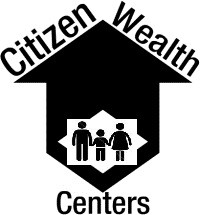By Wade Rathke July 11th, 2018
Let’s be honest.
There are many reasons that people decide to build an organization. Anger is one. A rage at injustice or an action by the government coupled with a recognition that your one voice, even yelling, will neither be heard nor will it create change, is often enough. Sometimes it is a mutual agreement between friends or like-minded individuals to all stand together and dive into the deep end of the pool and see if an issue can be attacked, a campaign created, or maybe an organization formed. Sometimes it is neighbors or fellow workers aggravated about a persistent issue or grievance that forces collective action. Sometimes it starts, as it usually did with ACORN, with someone knocking on your door. There can be all manner of triggers that begin organizations and without care, there can be as many that stunt its development or suffocate its future from birth.
Issues, grievances, inequities, and injustices are all reasons to build campaigns, but for an organization to live and win it has to have structure. It is important to be humble to the task, even while hopeful of the future.
Organizational structure needs to be organic, meaning it needs to allow and encourage natural growth. It needs to be flexible, because there is no way to predict the future. For organization builders, this means not suffering from “premature certainty.” It is important to leave windows and doors open, so the organization can breathe.
In the favelas of Brazil and throughout Latin America, any visitor can see several feet of rebar sticking through the roof of homes in lower income areas. Families think ahead to the possibility of adding another room or an additional floor, if and when, they have the money or the need. Everyone one knows they would not want to tear up the house in order to expand it.
The same thing is true of organizational structure. If an organization begins organizing tenants, it is hard to then also organize homeowners, unless the structure is flexible and organic enough to allow and encourage that. The same for united workers and welfare recipients, yet all may have mutual interests and be stronger together in one organization. The labor movement is a perfect example as they have endured name changes and often with difficulty become general worker unions even though they are called teamsters or carpenters. Without care and foresight, the beginnings prejudice the ends.
The same problem can arise around other organizational issues like membership versus non-membership, political versus nonpolitical, democratic elections versus appointments, and so forth. Organizations can change, but it is very, very difficult, and often they die trying or are replaced by other formations that can evolve and adapt to grow and change more easily. This is not fate or happenstance, but the result of decisions with painful costs because beginnings prejudice ends.
